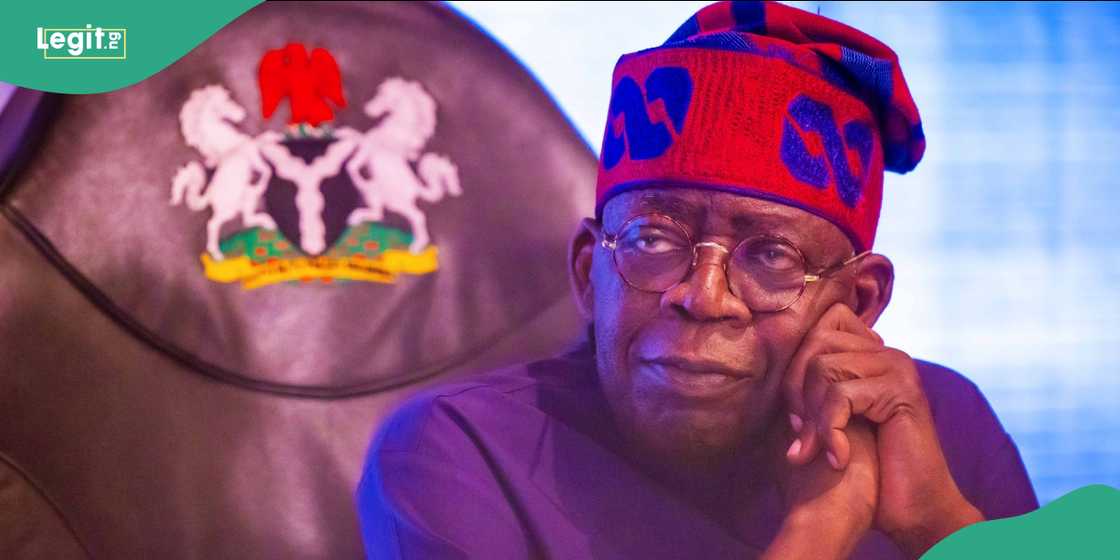Nigeria’s Public Debt Hits New High as FG Services Loan Collected From IMF, China, Others
- Nigeria's overall public debt rose 5.97%, or N8.02 trillion, to N142.3 trillion as of September 30, 2024
- Both the substantial domestic borrowing by the FG and the naira's depreciation were responsible for the surge
- The currency rate fell from N1,470.19/$ in June to N1,601.03/$ by the end of September last year
CHECK OUT: Education is Your Right! Don’t Let Social Norms Hold You Back. Learn Online with LEGIT. Enroll Now!
Legit.ng journalist Zainab Iwayemi has 5-year-experience covering the Economy, Technology, and Capital Market.
As of September 30, 2024, Nigeria's total public debt increased by 5.97%, or N8.02 trillion, to N142.3 trillion, the Debt Management Office (DMO) has reported.

Source: Getty Images
According to the DMO, the increase was caused by both the federal government's significant domestic borrowing and the depreciation of the naira. Concerns about sustainability have been raised by Nigeria's rising debt profile.
By the end of September, the exchange rate had dropped from N1,470.19/$ in June to N1,601.03/$.
The DMO claims that the majority of the nation's debt, which increased from N66.96 trillion in June to N69.22 trillion in September, is owed by the Federal Government.

Read also
Price of cooking gas changes in Abuja, Lagos, others as report list location to get it cheap
From N4.27 trillion to N4.21 trillion, the amount due by states and the Federal Capital Territory (FCT) decreased somewhat over the time frame. As of June 2024, the Nigeria's total national debt was N134.3 trillion.
Nigeria's external debt increased slightly from $42.9 billion in June to $43.03 billion in September, according to DMO data.
During the same time period, the naira equivalent of external debt increased dramatically by 9.22%, from N63.07 trillion to N68.89 trillion.
Domestic debt had a mixed performance, falling from $48.45 billion in June to $45.87 billion in September, a 5.34% decrease in dollar terms. However, domestic debt rose from N71.22 trillion to N73.43 trillion, or 3.1%, in naira terms.
The highest portion of domestic debt was found to be Federal Government bonds, which rose 4.47 percent from N52.32 trillion in June to N54.65 trillion in September.
Compared to 78.13 percent in the previous quarter, this amounts to 78.95 percent of the total domestic debt stock. Most of this growth was due to the issue of bonds in naira currency.
It was also observed that the debt stock increased by N1.47 trillion as a result of Nigeria's first domestic bond denominated in dollars.
Treasury Bills, the second-largest component of domestic debt, decreased slightly by 0.66 per cent to N11.73 trillion from N11.81 trillion in the previous quarter, according to the report.
This decline is in line with initiatives to reduce rollover risks and manage short-term debt.
The study also reveals that while debts to France and Germany were the same, loans from China, Nigeria's biggest bilateral lender, decreased by $99.98 million.
Nigeria services some loans collected
Legit.ng reported that the Nigerian government spent more than $2.24 billion to settle matured external debts between January and June 2024.
The country's recent loan repayments using the data obtained from the Debt Management Office (DMO).
A breakdown of figures showed that in 2024's first quarter (January to March), the Nigerian government spent $1.12 billion to service debts owed to various foreign entities.
PAY ATTENTION: Сheck out news that is picked exactly for YOU ➡️ find the “Recommended for you” block on the home page and enjoy!
Source: Legit.ng



